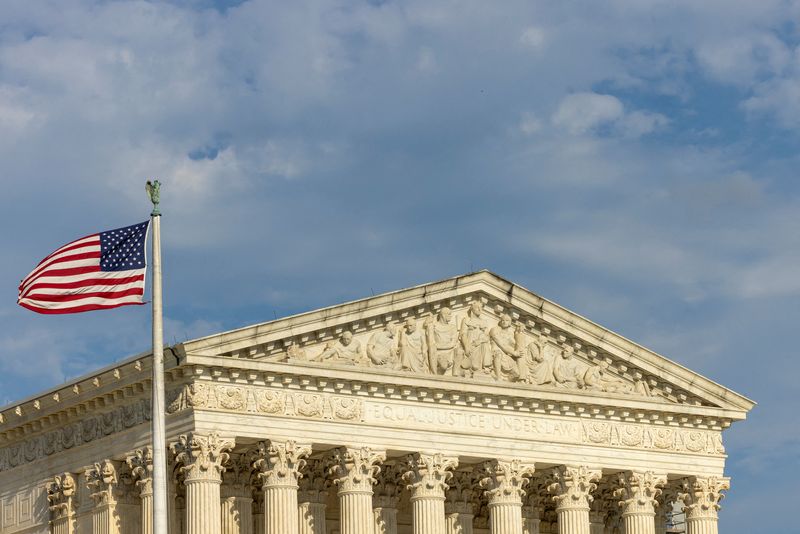By Andrew Chung, John Kruzel
WASHINGTON (Reuters) -The U.S. Supreme Courtroom declined on Friday to placed on maintain new federal air air pollution guidelines from President Joe Biden’s administration to tighten limits on mercury and methane, performing in challenges introduced by a gaggle of states – most of them Republican-led – and trade teams.
The justices denied emergency requests by the states, in addition to energy and mining, oil and fuel corporations, to halt the Environmental Safety Company guidelines whereas litigation continues in decrease courts.
The rules, issued underneath the landmark Clear Air Act anti-pollution regulation, purpose to chop mercury and different metals from coal-fired energy vegetation emissions, as properly methane and different gases referred to as risky natural compounds from oil and fuel manufacturing.
The mercury rule tightened limits on emissions of poisonous metals for all coal vegetation by 67% and tightened limits on mercury emissions from lignite coal vegetation by 70%.
The methane rule restricted flaring – the burning of extra methane throughout oil and fuel manufacturing – and required oil corporations to watch for leaks from properly websites and compressor stations. It additionally created a brand new program for detecting and reporting giant methane releases from so-called “super emitters.”
The challengers contend that the EPA exceeded its powers in issuing unjustified guidelines that threaten the U.S. electrical energy provide and usurp the function of states in establishing emissions requirements.
The rules would profit public well being and the local weather, the EPA mentioned.
The mercury rule reduces the chance of coronary heart assaults and most cancers attributable to such pollution, in addition to developmental delays in youngsters, whereas reining in methane, which has extra warming potential than carbon dioxide and breaks down within the environment extra shortly, can have a extra instant affect on limiting local weather change, in response to the EPA.
Challengers together with the states, fossil-fuel trade teams, in addition to energy, mining and oil and fuel corporations filed a number of lawsuits within the U.S. Courtroom of Appeals for the District of Columbia Circuit, which in July and August denied requests to pause the rules pending its assessment.

The Supreme Courtroom, which has a 6-3 conservative majority, has restricted the powers of the EPA in some essential rulings in recent times.
In June, the courtroom blocked the EPA’s “Good Neighbor” rule aimed toward decreasing ozone emissions which will worsen air air pollution in neighboring states. In 2023, the courtroom hobbled the EPA’s energy to guard wetlands and struggle water air pollution. In 2022, it imposed limits on the company’s authority underneath the Clear Air Act to scale back coal- and gas-fired energy plant carbon emissions.




